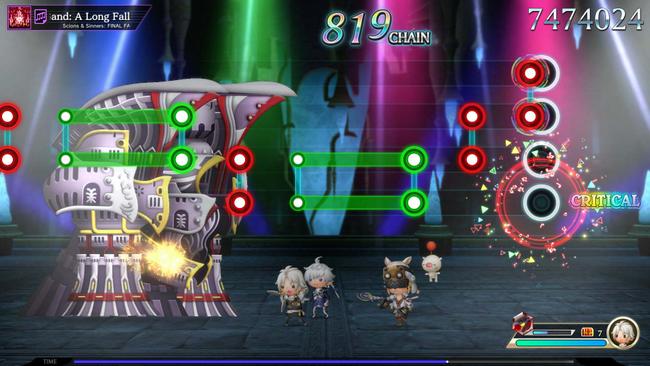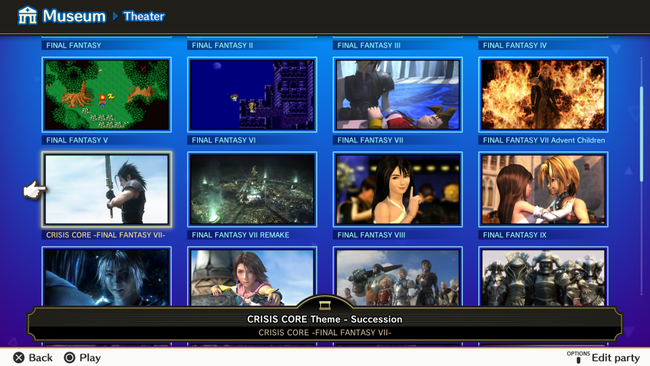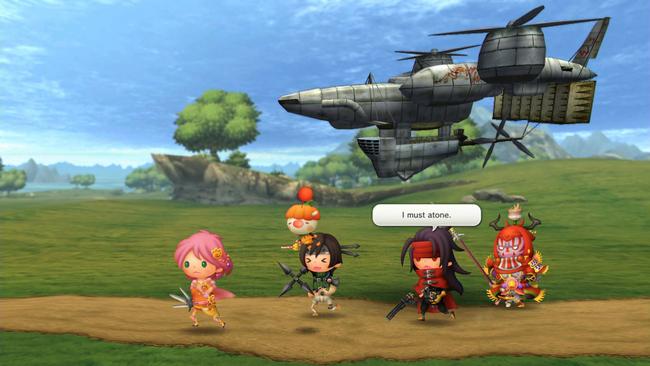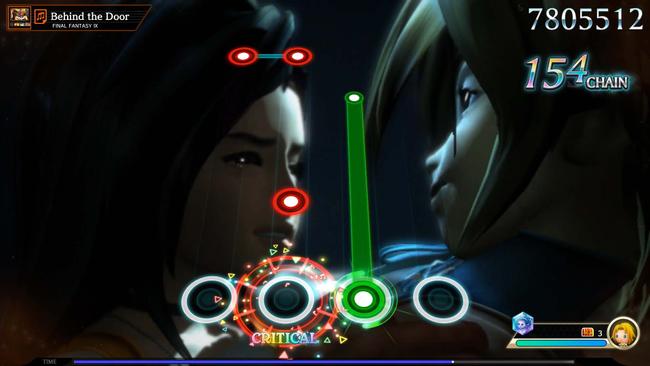
Theatrhythm: Final Bar Line Review
Sometimes when reviewing a game, you can get a feel for how that score will hash out by the time the credits roll, mere moments into playing it - Theatrhythm: Final Bar Line was one of those games. You don't need to be a Final Fantasy fanatic to enjoy Theatrhythm - in fact, I'd played Curtain Call on my 3DS before I'd even touched a mainline Final Fantasy, back in the day - but more so than ever, there's an underlying energy that this franchise brings to the forefront with its reverence for the music and history of Square's iconic RPGs.
Realistically, Final Bar Line isn't all that different from how the series played and looked on the 3DS. What is remarkable about it, however, is the sheer variety of music represented in the game. Final Bar Line's standard edition brings nearly 400 songs from across the Final Fantasy series' history to the forefront of the action, with an additional 27 songs locked to the Digital Deluxe Edition, and then more to come with season passes for other Square Enix franchises in the weeks following launch. While you could nitpick about a favorite song from your favorite Final Fantasy not making the cut, considering the sheer breadth of the music on offer it's hard to not feel at least a little bit silly when doing so.

Taking off my Final Fantasy cap for a second, and setting it aside, I feel I should draw special attention to the actual rhythm game mechanics that Final Bar Line brings to the table. Notably, the game is based on the arcade-only Theatrhythm: All-Star Carnival, with some minor tweaks to note maps here and there. Swipe holds, where you would hold down a direction for the duration of a hold note have been removed, for one, though any reason why that was decided is a little puzzling, with songs edited to account for the removal of the input. This does mean that even players familiar with the arcade release like myself have plenty new to experience with the game, as it's not merely a carbon copy of the title we've been able to play for years now.
Unlocking songs to be played can be accomplished two ways; every Final Fantasy has its own "Series Quest" which has players playing through an abridged retelling of that game's journey through its music. Sometimes there are multiple options for you to proceed through a game's quest; for example, mirroring the new player experience in Final Fantasy XIV, the first quest in that game's catalog offers 3 options, representing the 3 different city-states that you can begin your journey in Eorzea in. Completing a game's series will unlock all of the songs associated with it for play. Otherwise, playing a song for the first time will also unlock it for use; while you'll normally do this organically through Series Quests when doing Free Play the game will give you several recommendations of which songs to play next, which can and will include songs that you might not have unlocked yet.

While Theatrhythm is not explicitly an RPG, there is an element of the genre that comes into play when attempting challenges in Quests, and even when merely attempting songs in the first place. How many mistakes you can make before being kicked out of a song is determined by your parties shared HP; a stat that is tied to a combination of their level, stats, and can be influenced by abilities that characters learn as they level up from gaining experience upon clearing songs with said character. While many challenges for songs in Series Quests merely ask you to complete some sort of skill or feat, others might require specific party compositions or characters to complete them; many times this means clearing a song from a game with a character who starred within it.
Clearing challenges not only will contribute to the game's completion percentage, but players will frequently receive goodies like exhibits for the in-game museum, showcasing characters and artwork from the series' history, as well as items that can be used during songs, and cosmetic equipment for your party's moogle companion, or the airship they'll drop in from on Field Music Stages.

Perhaps this doesn't warrant much explanation if you've already played a Theathrhythm before, but much like the rest of the (localized) entries in the series, Final Bar Line separates songs into 3 categories which all have an impact on how these songs are both played and represented. Battle Music Stages, or BMS, have players input notes as they scroll across the screen on the 4 lanes corresponding to different members of your party. The purpose of these stages is to battle enemies and attempt to defeat the boss waiting at the end of the stage. While you can still clear the song without doing so, many Series Quests will ask that you do so for a challenge. Field Music Stages, or FMS, instead only feature one lane, though new to Final Bar Line there are moments where it might split into two, and players are asked to input two commands at the same time. Unique to this mode are the hold notes that ask players to use the analog stick to "trace" the note's path up and down, to the rhythm of the music. These stages are all about moving as far through the level as possible and are - naturally - affiliated with field themes from the series' history.
Finally, EMS are special Event Music Stages, that use the BMS control scheme overlayed on top of a video that's integral to the game in question. There are only a few of these songs in the game, and many are offered as essentially a reward for clearing a title's series quests.

I was always a fan of Theatrhythm, but returning to the franchise on the Switch I was struck by how little I could find to complain about this most recent release. As both a Square Enix fan, as well as a rhythm game junkie, it's hard to argue against the idea that this is almost a perfect game. While much of the experience of playing Theatrhythm obviously pulls on the nostalgia that players have for these games, it's far from a title that feels like it only exists solely for that nostalgia. When playing it the love and care that the developers have for the franchise and its history is infectious, and even in the short period I've had with the game thus far, I can already see myself returning to it again and again whenever the mood strikes me. Final Bar Line is a triumph in every sense of the word.